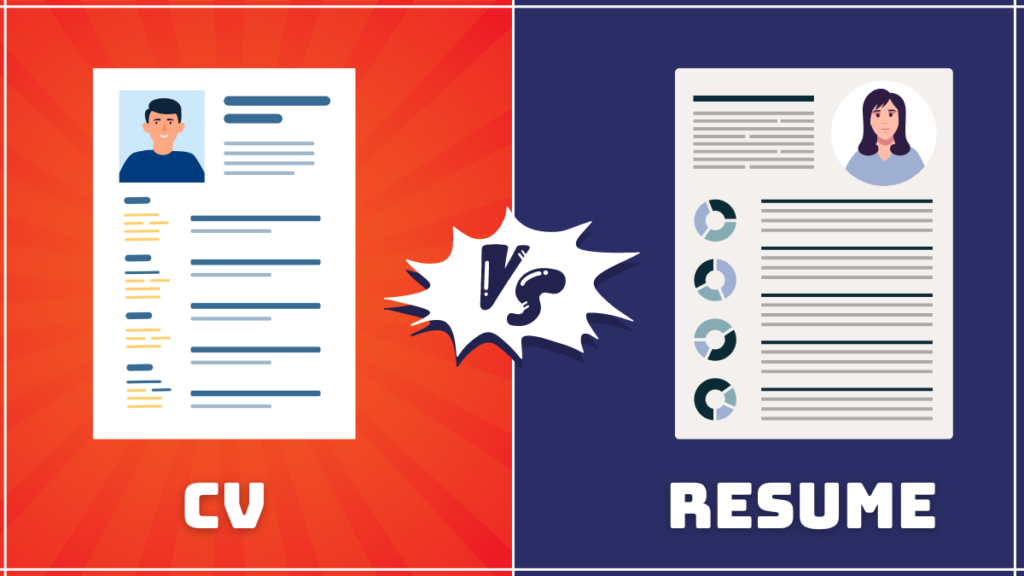
Confused about the difference between CV vs resume?
You’re in the right place.
While both documents are used for job applications, a CV is a comprehensive document highlighting academic and professional achievements, typically used in academia. A resume is a concise, 1-2 page summary of relevant skills and experiences tailored for specific job applications.
Why does it matter?
Knowing which one to use can make a huge difference in landing your dream job.
In this guide, we’ll break down the key differences between a CV and a resume, when to use each one, and provide example templates to help you get started.
Did you know that around 24% of hiring managers look at each applicant’s resume in less than 30 seconds?
Under such conditions, or let’s just say ‘competition’, you need to make sure what exactly you put in the resume increases your chances of getting hired.
OR, should you come up with a CV?
OR Resume?
Well, now that you’re here, it is safe to state that you’ve been mixing the two terms, i.e., a CV vs a resume.
You’re not alone!
Most job seekers frequently mix them up. And it’s no big deal because they both have the appearance of being identical, and they are both used to applying for jobs.
However, they do differ in certain ways. Even though these terms are generally used interchangeably, they actually serve different purposes and have separate meanings.
That said, let’s look into today’s guide discussing the very basic YET confusing “cv vs resume”.
Read on!
What is a CV?
A CV (curriculum vitae) is used while you’re looking for a job, internship, or academic program in the EU (European Union).
Often abbreviated as CV, the Latins define curriculum vitae as a ‘course of life’. Hence, your CV should provide a synopsis of your professional history along with your personal information.
It goes into greater depth to showcase your academic qualifications, awards, honors, research experience, published works, teaching experience, presentations, and scholarships.
It is important to keep updating your CV with time. Each time you achieve something professionally or academically, your CV needs to highlight the latest updates.
What to Include in a CV?
Below are some important sections that you must have on your CV. This begins with the basics including:
- A professional profile
- Education history
- Professional skills
- Comprehensive job history
- Contact information
Once you’re done with it, you may want to add other details such as:
- Publications
- Awards and honors
- Grants, fellowships, and scholarships
- Volunteer work
- Research
- Languages
- Teaching or lecturing experience
- Certificates
- Relevant hobbies and interests
- Conferences and speaking engagements
- Grants, fellowships, and scholarships
- Licenses
- Volunteer work
- Professional associations and memberships
- Significant professional references.
When To Use a CV?
In the United States, curriculum vitae are also used for some positions in the fields of law, medicine, research, and science.
CVs, with their many pages detailing your professional skills and experience, are best suited for niche jobs that call for expert-level expertise.
If a curriculum vitae (rather than a resume) is requested in the job posting, then you should submit the CV. Even, while applying for a job abroad, always send a curriculum vitae.
Curriculum vitae is a crucial component of applications for fellowships, research, postdoctoral degrees, and other academic programs. You can use it while applying for:
- Academic positions
- Possible opportunities or future research
- Employment opportunities in the EU
- Examples of specific occupations (including legal and medical)
CV Example Templates
What is a Resume?
A resume is an organized and focused document that highlights your relevant employment experience, education, talents, and achievements relating to a certain job.
Resumes are formal pieces of writing that job-seekers use to “promote” themselves as the best possible candidate for open positions.
Your resume can be organized in three ways:
- Reverse chronologically
- Functionally
- Or, a combination of the two above.
Generally, the word resume contains two accents when written and spelled correctly. For example, a résumé. “Resumé” means “to sum up” in French, which is also the origin of the English word “resumé.”
For formatting reasons, it is standard practice to type résumé as a ‘resume’ and drop the accent when composing an email or talking in general.
However, when writing the word on documents like the enclosure line of your cover letter templates, it is advisable to write it as is and use accents for most professional purposes.
What to Include in a Resume?
Generally, all resumes should have:
- Full name
- Contact information
- Your job title/the designation you’re applying for
- Educational qualifications
- Resume summary or objective
- Work experience (containing work history)
- Languages and proficiency
- Relevant skills (mix of hard and soft skills)
- Relevant certifications/accomplishments/ interests (if any)
Bonus: If you’re a fresher who is looking for a job and wondering how to create a resume without experience then here is an ultimate guide for it.
When to Use a Resume?
When looking for a career that doesn’t include research or academia, you can use a resume. A resume is required for job applications in the majority of American nonprofit firms, corporate businesses, and government agencies.
Employers can quickly scan through your one-page resume to see if you meet the basic requirements/minimum criteria of the position.
To put it shortly, use a resume when:
- You’re attending any career fairs.
- You’re applying for a job.
- You’re networking with other professionals in the same field.
Resume Example Templates
Resume vs. CV: What Makes Them Different From Each Other?
Irrespective of your work experience, almost every job calls for a resume or a CV today. Be it full-time, part-time, on-site, or work from home jobs.
Under such cases, it is important for job seekers (freshers as well as experienced) to know the basic differences between what is a CV vs a resume to increase their chances of not being on the rejected list.
Here’s what you need to consider!
1. Length and the Content
One key difference between a curriculum vitae and a resume is the length.
The length of a resume is 1-2 pages only. Your education, work history, and skill set can be summarised in a resume, which should typically be no more than 1-2 pages long. Additionally, make sure that it solely contains details that are relevant to the designation you are applying for.
In comparison, a curriculum vitae (CV) may include all the relevant information about your academic and professional history. As for length, a CV can be three pages or longer. Your complete career is laid forth in it. This includes your accomplishments and publications to your awards and research.
2. Geographical Location
Companies may look at resumes and curriculum vitae differently depending on where you live. In the United States, a curriculum vitae (CV) is far more detailed than a resume. Academic and scientific fields ask for CVs over resumes.
On the other hand, CVs are the standard method of application for most jobs in the EU and elsewhere. The best part is that many foreign companies see a curriculum vitae (CV) as being quite similar to a resume.
Hence, they are totally fine with what they’re provided with.
3. Purpose
This is yet another major CV vs resume difference. The two document’s respective purposes distinguish one another.
A resume is the most effective application tool for the majority of American employment. Your only goal should be to get the prospective employer to schedule an interview with you.
As stated above, a curriculum vitae (CV) is sometimes preferred over a resume when applying for jobs in the medical, academic, research, and scientific sectors. Many hiring committees and department heads in these industries prefer to review an applicant’s background thoroughly, before making a final decision.
| Parameters | Curriculum Vitae (CV) | Resume |
| Length | Can range from 2 or more pages (8 max) | 1-2 pages only |
| Purpose | Highlights an overview of your professional and academic qualifications | Highlights your qualifications and skills needed for the job |
| Format | Chronological | Functional, Chronological, Combination |
| Document Type | Comprehensive | Crisp and Concise |
| References | May include | Not included |
| Focus | Academic achievements and publications | Professional experience |
| Modification | Same for all jobs | Changes with the job requirement |
| Personal Information | Includes personal information like date of birth, marital status, nationality, etc. | Limited to professional details like contact details, name, and social profiles. |
CV vs Resume: International differences
Below is a brief description of what is CV vs resume difference around the world. Take a look!
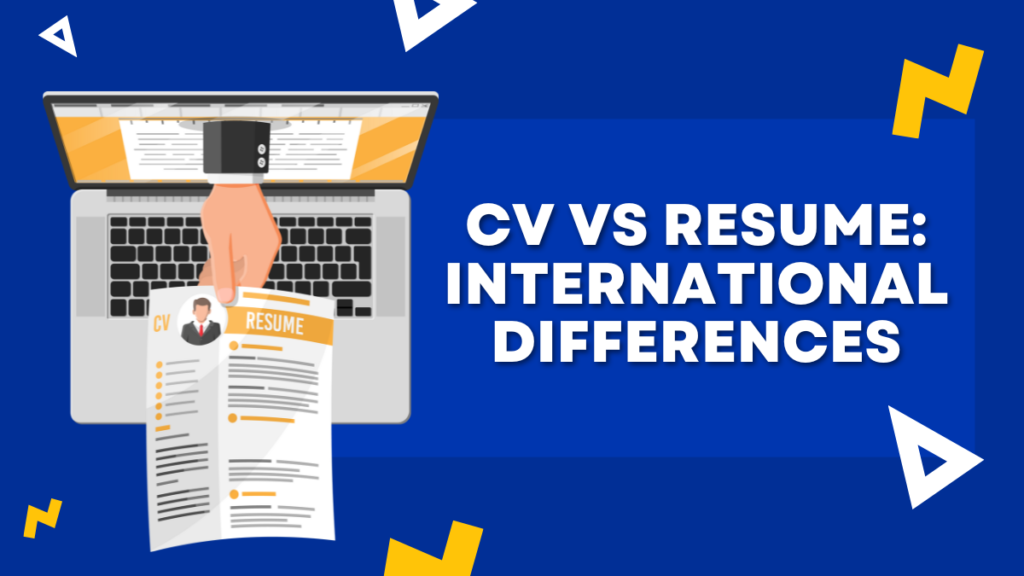
- North America (non-academic role): The United States and Canada use resumes as their standard document. Although they go by a different name in Mexico, these CVs are a one-page document that is identical to resumes.
- North America (academic role): Academic jobs in North America are best filled out with a curriculum vitae. The reason behind this is because it gives more details on your educational background.
- South America: The hiring document is commonly referred to as a “CV” in most South American countries. However, it is structured similarly to a standard resume in North America.
- Europe: While resumes are still used in some countries, curriculum vitae are more common in Europe. You need to find out which document is preferred by each country. The documents required for hiring in Europe also tend to make use of visuals/pictures more frequently. This is one of the major parameters under European CV vs American resume.
- Australia and New Zealand: A curriculum vitae (CV) is the most common form of employment paperwork in Oceania. Yet again, its contents are very similar to those of a resume in the United States.
- Africa: Employers in Africa tend to favor CVs more. On the other hand, a “Comprehensive CV,” which is longer, may be requested in some nations, while a “one-page CV,” similar to a resume, may be sufficient in others.
- Asia: A resume is not enough to apply for a job in Asia; a long-form curriculum vitae is also essential. Make sure you research the particulars of the country you are applying to, as it differs from one to another.
Wrapping It Up
Summing up, it is advisable to make a curriculum vitae and resume both, to keep up with different work requirements. In fact, it is a standard procedure for many people looking for work.
Even while you generally won’t submit both for a single job application, being prepared hurts none but offers you more room to spare. For a clearer understanding, you can contact the recruiting manager or recruiter in charge in case you have any questions regarding which document to submit.
Now that you know the basics of CV vs resume, let me know in the comments what you think!
Have you had any experiences where one was preferred over the other?
For more such beginner-friendly career-oriented resources, stay connected with PenChise.
FAQs: Resume vs CV
1. Is CV and resume are same?
CV and resume are not the same, though they are sometimes used interchangeably outside the US. A CV is typically longer and more comprehensive, detailing a person’s entire academic and professional history. A resume is shorter, usually 1-2 pages, and tailored to highlight relevant skills and experiences for a specific job application.
2. Should I use my CV or resume?
Whether to use a CV or resume depends on the job and location:
– Use a resume for most jobs in the US and Canada.
– Use a CV for academic, scientific, or research positions, or when applying in many European countries.
– Check the job posting to see which is requested.
3. Can CV be used as resume?
A CV and a resume are not typically interchangeable. A CV is generally too detailed and lengthy to use as a resume. However, you can extract relevant information from your CV to create a tailored, concise resume for specific job applications. Always follow the employer’s guidelines on which document to submit.
4. What is CV in full form?
CV stands for Curriculum Vitae, which is Latin for “course of life”.
5. Can a resume be 3 pages?
While a resume can technically be 3 pages, it’s generally not recommended. Most experts advise keeping resumes to 1-2 pages maximum. A 3-page resume is only appropriate for senior executives with extensive experience, academics with numerous publications, or certain specialized fields.
6. Which is better for freshers CV or resume?
For freshers, a resume is generally better than a CV. A resume is more concise (typically 1-2 pages) and focuses on relevant skills and experiences, which is ideal for entry-level job applications. It allows freshers to highlight their potential and transferable skills, even with limited work experience. Most employers in non-academic fields prefer resumes for initial job applications from recent graduates.
7. How long is a CV?
A CV’s length typically varies:
1-2 pages for most job applications.
2-4 pages for experienced professionals or specialized fields.
3+ pages for academic CVs, detailing publications and research.
8. Are CV and resume the same in India?
In India, CV and resume are often used interchangeably, but there are subtle differences. CVs are typically longer and more detailed, and used for academic or research positions. Resumes are shorter (1-2 pages) and tailored for specific job applications in the private sector. For public sector jobs, CVs are more commonly requested. It’s always best to check the job posting to determine which document is preferred by the employer.
9. Is a CV a cover letter?
A CV is not a cover letter. These are two distinct documents with different purposes in the job application process. A CV (Curriculum Vitae) is a comprehensive document detailing your entire professional and academic history, while a cover letter is a brief, personalized introduction that accompanies your CV or resume.

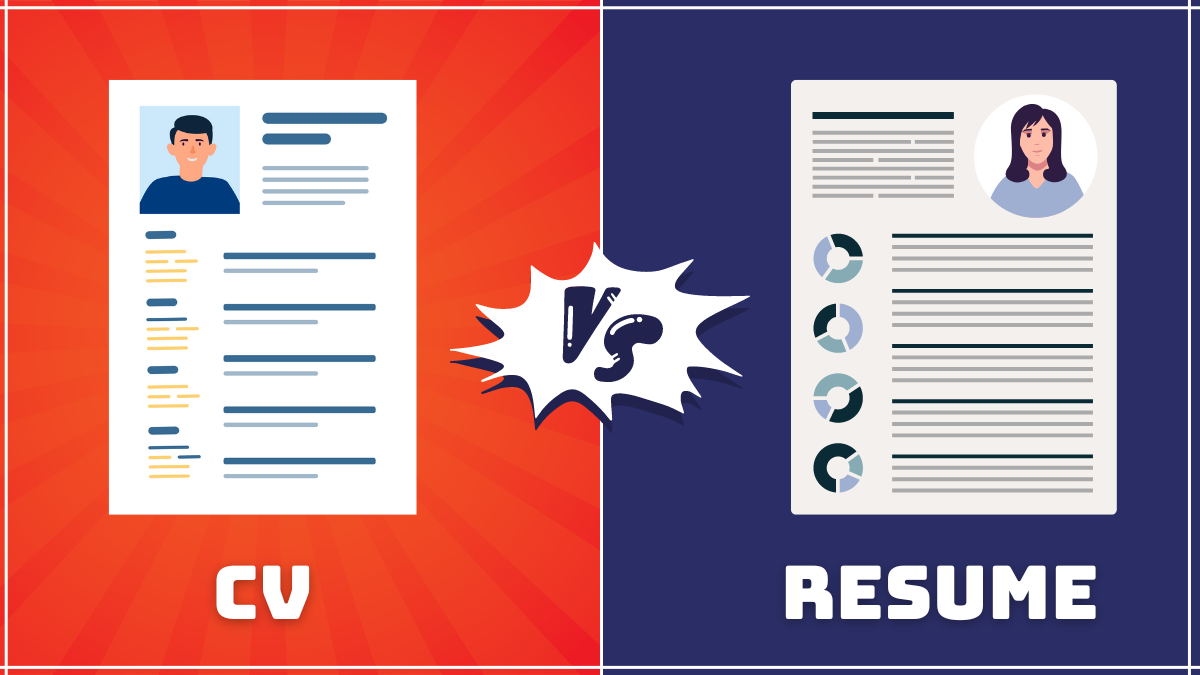
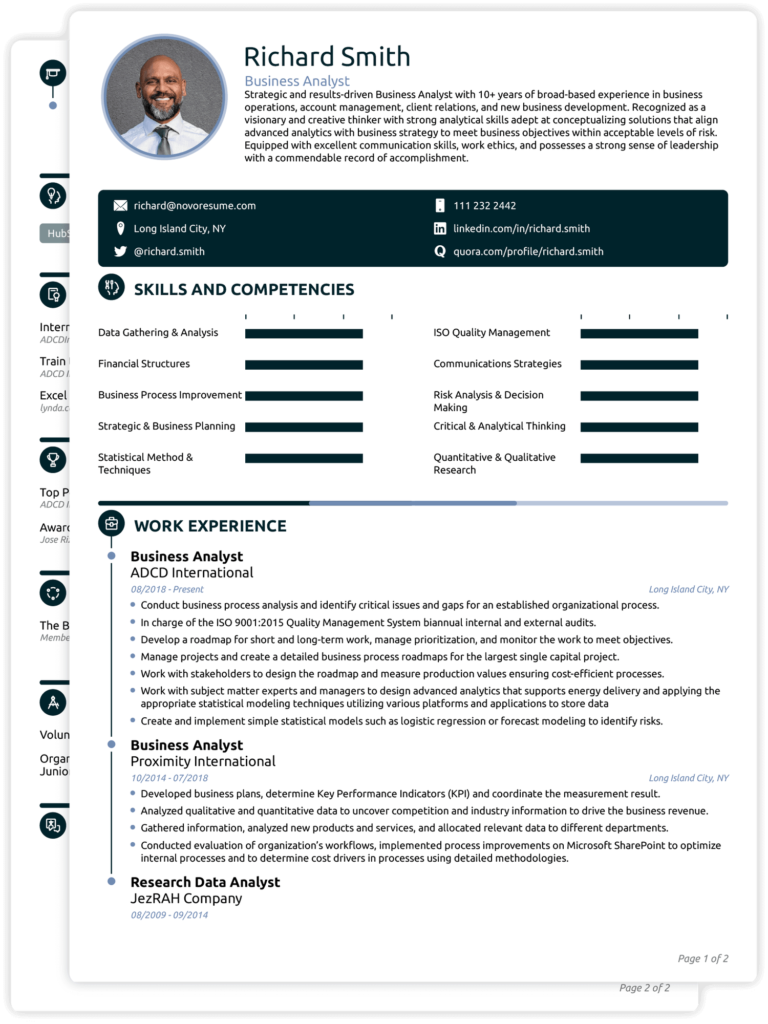
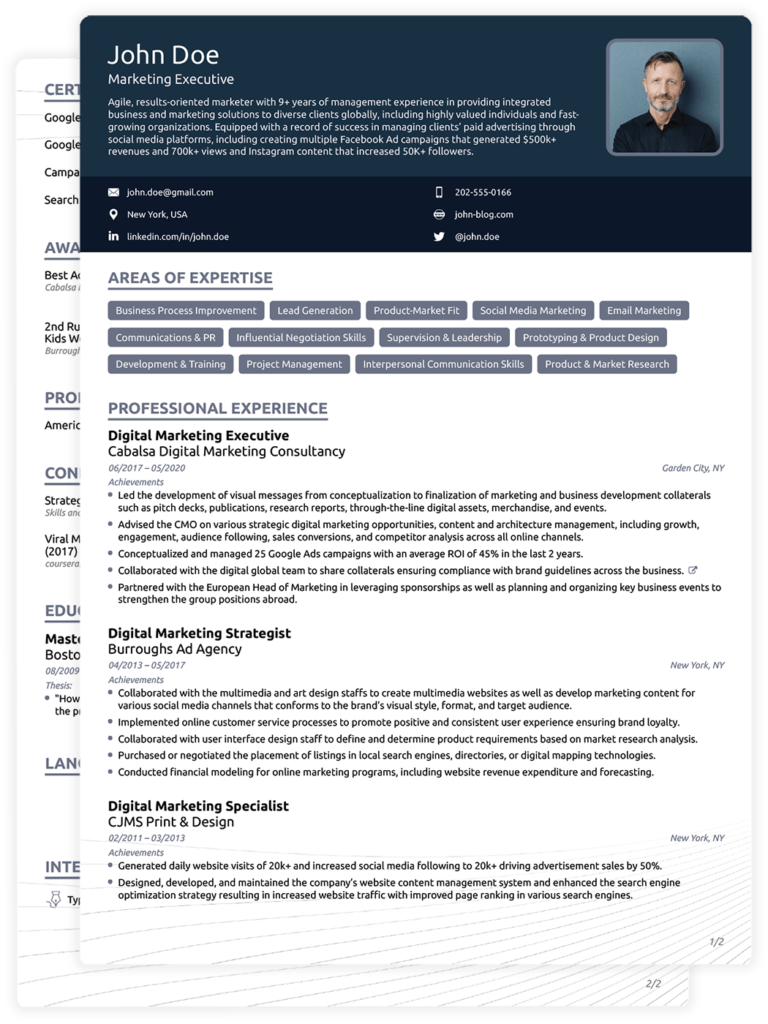
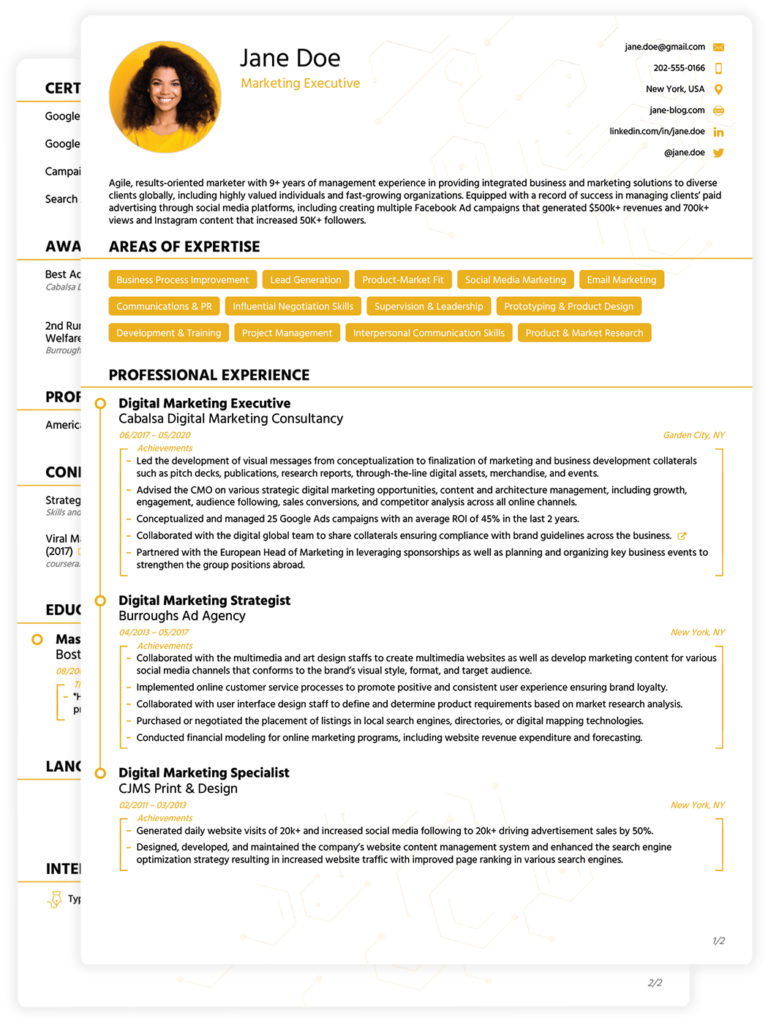
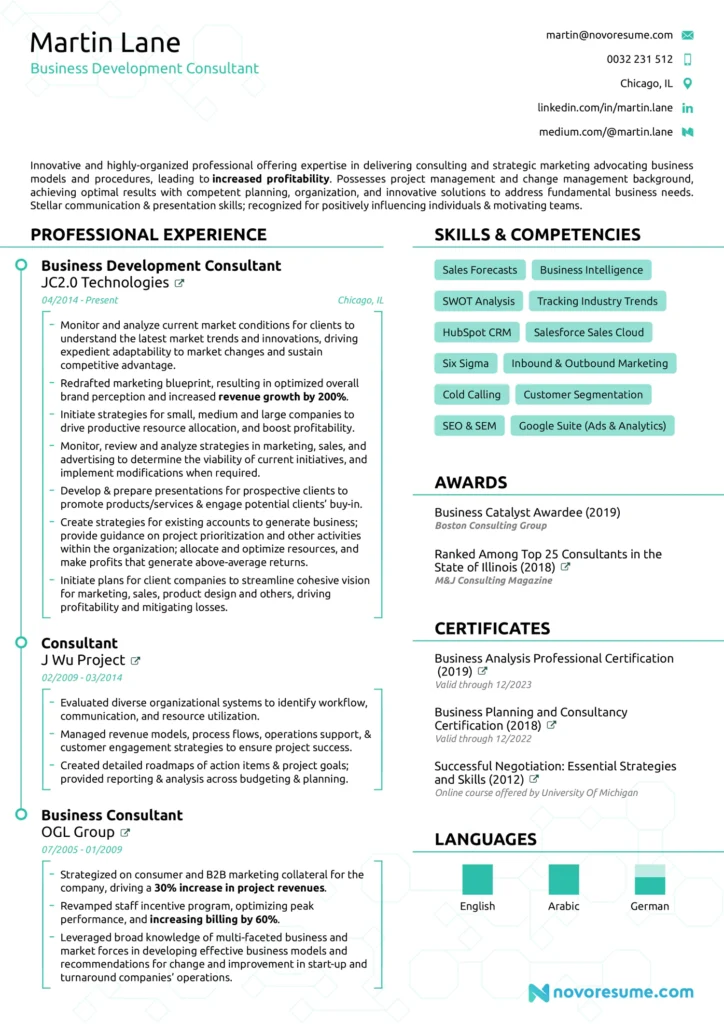
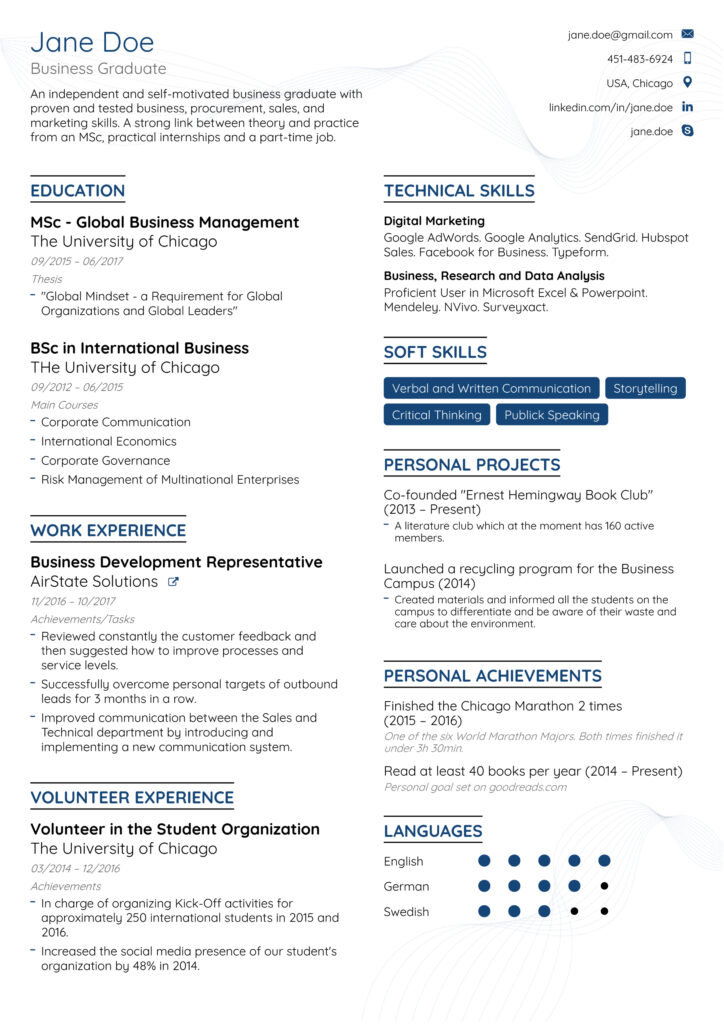
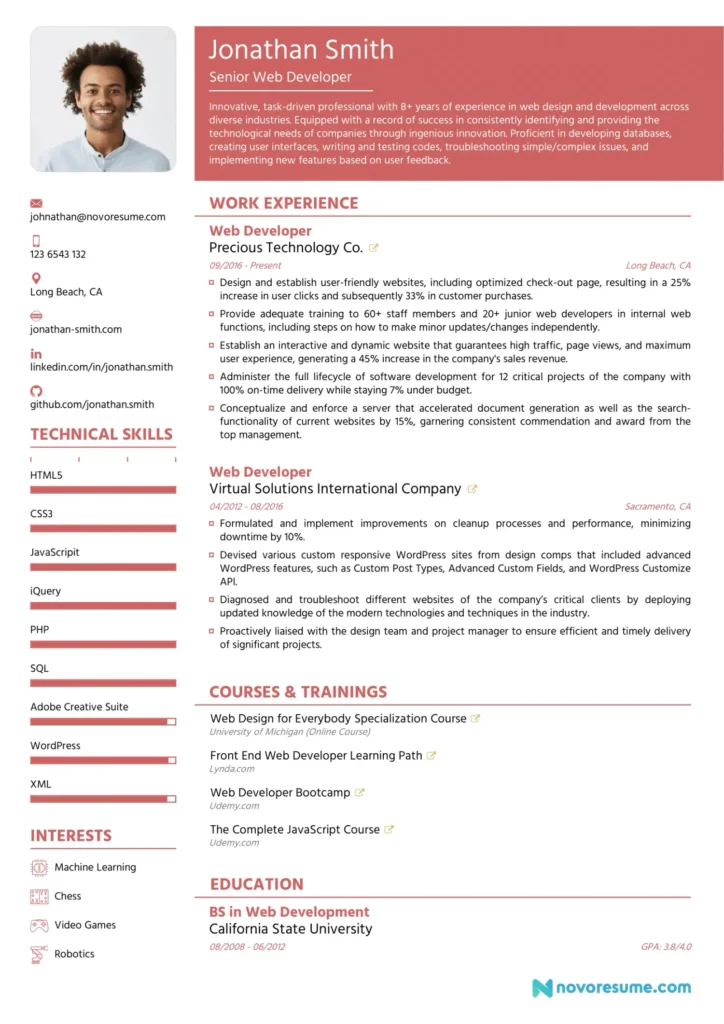
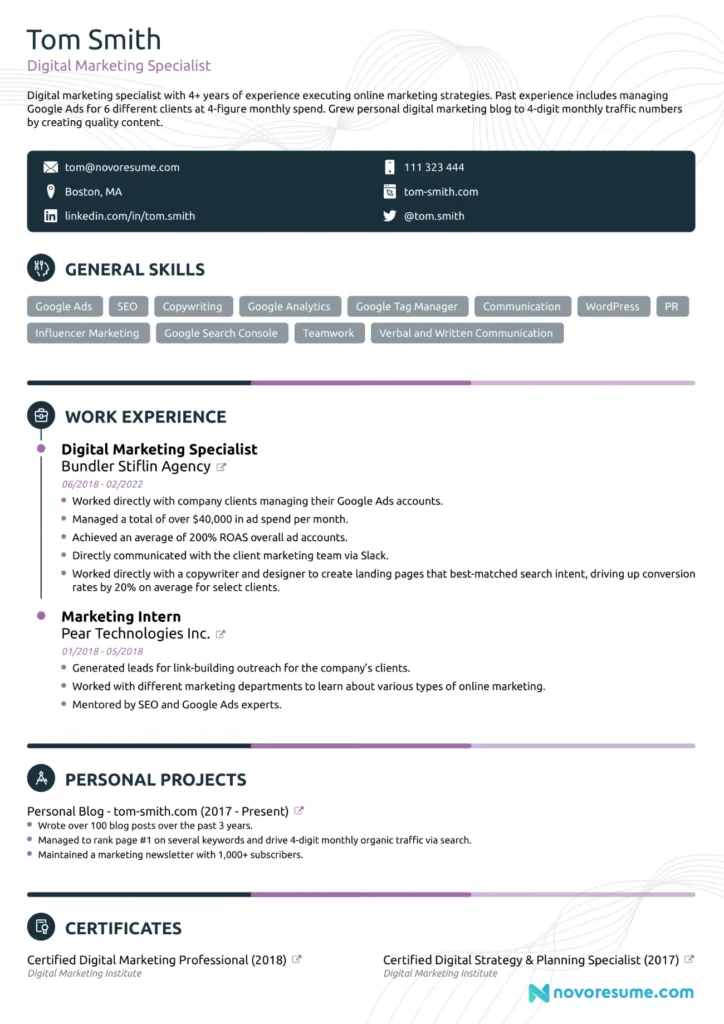
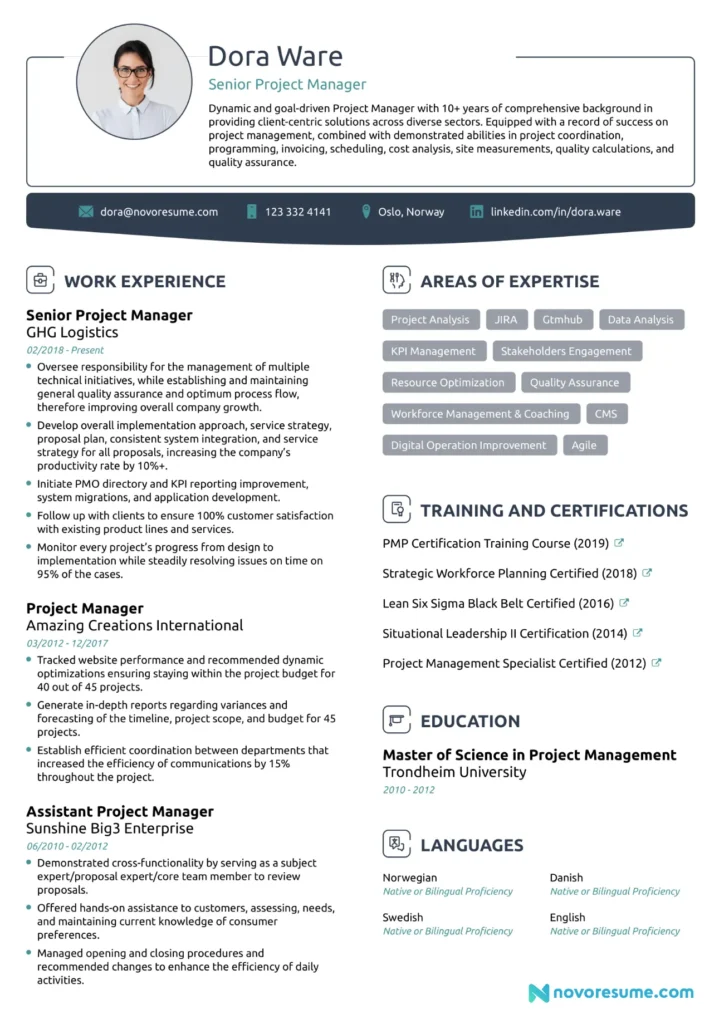



I have been browsing online more than three hours today yet I never found any interesting article like yours It is pretty worth enough for me In my view if all website owners and bloggers made good content as you did the internet will be a lot more useful than ever before